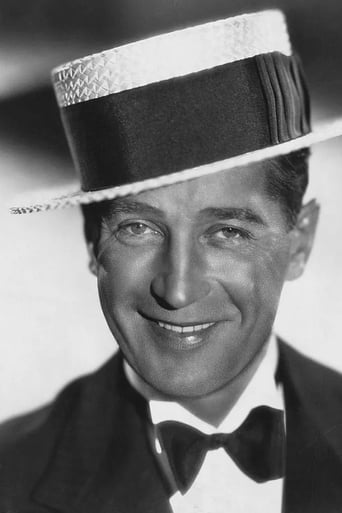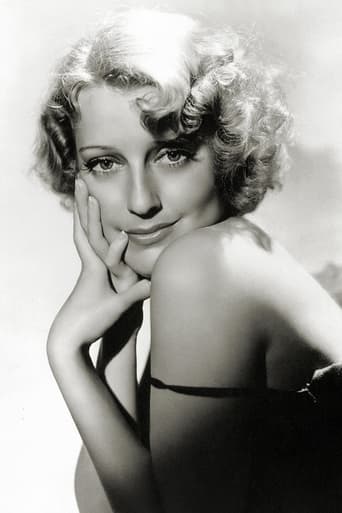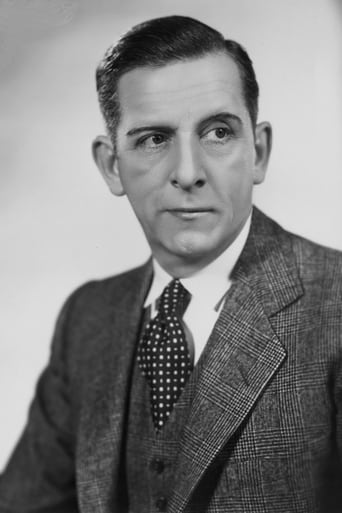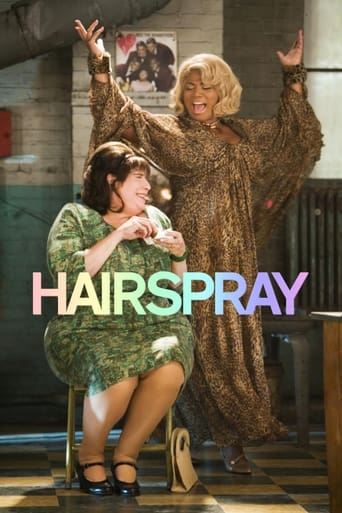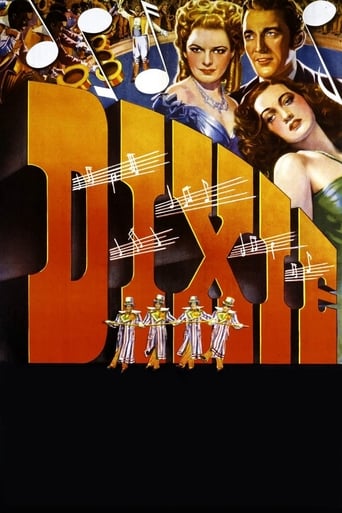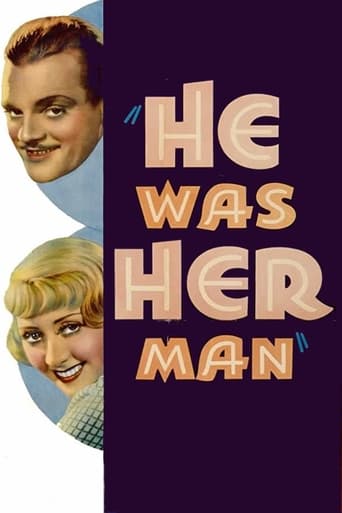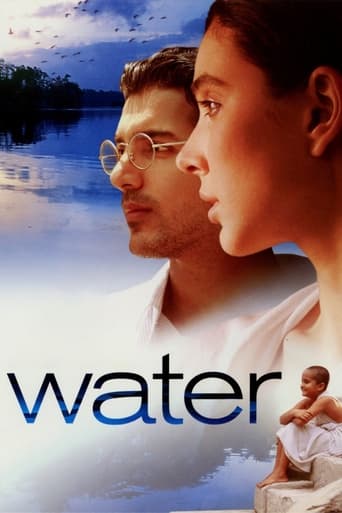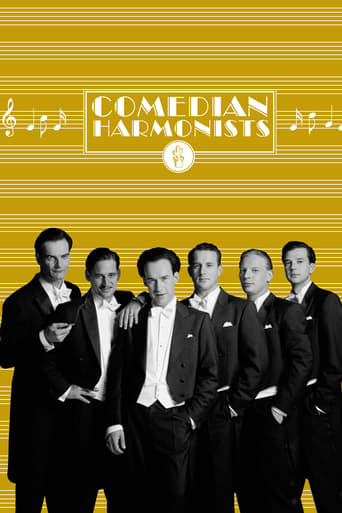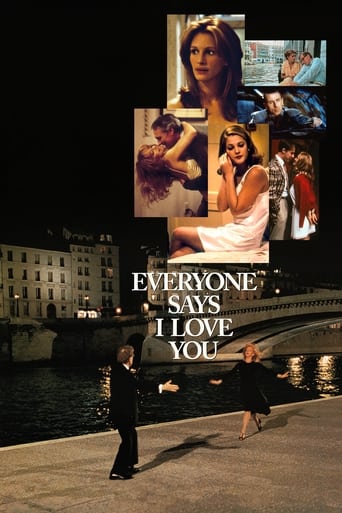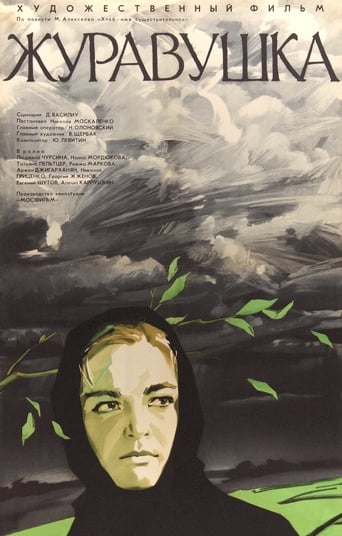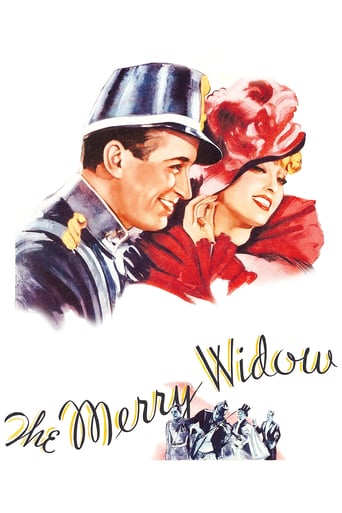
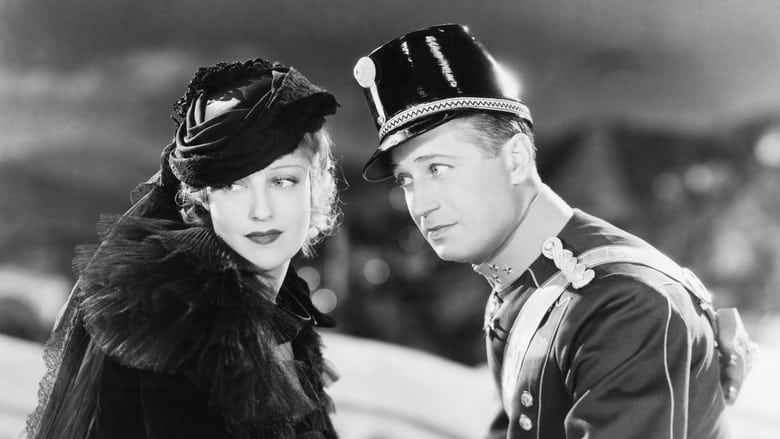
The Merry Widow (1934)
A prince from a small kingdom courts a wealthy widow to keep her money in the country.
Watch Trailer
Cast
Similar titles
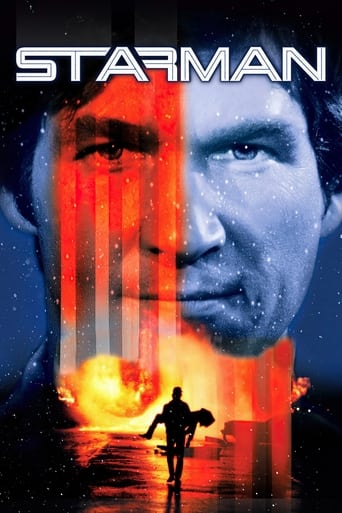
Reviews
Must See Movie...
Excellent but underrated film
Fun premise, good actors, bad writing. This film seemed to have potential at the beginning but it quickly devolves into a trite action film. Ultimately it's very boring.
This is one of the best movies I’ve seen in a very long time. You have to go and see this on the big screen.
THE MERRY WIDOW (Metro-Goldwyn-Mayer, 1934), produced and directed by Ernst Lubitsch, is a musical-comedy based on the 1905 operetta by Franz Lehar, though the movie is more Lubitsch than Lehar. Marking the fourth and final screen collaboration of Maurice Chevalier and Jeanette MacDonald, and their only one together for MGM, many rate this their very best. Although their previous efforts for Paramount: THE LOVE PARADE (1929); ONE HOUR WITH YOU (1932) and LOVE ME TONIGHT (1932) have their own style of significance and flavor, depending on one's choice of favorites, THE MERRY WIDOW at times seems more like THE LOVE PARADE with more extravagance and gloss than the Paramount productions. Lubitsch, who happened to direct their first two, offers more in regards of familiarity in witty comedy along with some surprising twist of events, yet slightly disappoints in regards to brief song passages rather than satisfactory five minutes or more of tuneful melodies.The story opens in "The Kingdom of Marshovia in the year 1885," a Central European country north of Roumania (so small it's found as a dot on the map through a magnifying glass) where Madame Sonia (Jeanette MacDonald), a widow wearing black gown with veil over her eyes, is spotted by Captain Danilo (Maurice Chevalier), an officer of the royal guard marching down the street with the other soldiers. A popular ladies man, Danilo bribes guards and dog (with food, of course) to climb over the garden wall to make the acquaintance with the widow to receive the answer of "if" and "when" they should meet again. Sonia shows no interest in the conceded young man and sends Danilo on his way. Through the passage of time, Sonia finds her diary with nothing posted, and decides that there's "a limit to every widow" by leaving Marshovia for the merry life in Paris. Being the richest widow in the world and controlling 52 percent of Marshovia's financial security, King Achmet (George Barbier) submits Danilo, having caught him alone in the boudoir of his very young wife, Queen Dolores (Una Merkel), to Paris with instructions to romance the merry widow Sonia and bring her back to Marshovia. Unaware of her identity, it so happens Danilo has already made the acquaintance of Sonia at Maxim's, under her guise of Fifi. After Fifi leaves him, Danilo disappears on a drunken binge. After being brought to Popoff (Edward Everett Horton), ambassador of Marshovia of diplomatic relations, he sobers him up to resume his mission with Sonia, whom, to his surprise at the Embassy Ball, turns out to be Fifi from Paris. Situations occur later that find Danilo facing a court martial and other series of unforeseen events.The motion picture soundtrack is as follows: "Girls, Girls, Girls" (sung by Maurice Chevalier); "Vilia," "Tonight Will Teach Me to Forget," "The Merry Widow Waltz" (all sung by Jeanette MacDonald); "I'm Going to Maxim's" (sung by Chevalier); "The Merry Widow Waltz" (MacDonald); "I'm Going to Maxim's" (Chevalier); "Can-Can Dance," "Girls, Girls, Girls" (Chevalier); "The Merry Widow Waltz," "I Leave Maxim's to You," "Widows Are Gay," and "The Merry Widow Waltz." Of the song interludes, the most memorable happens to be "The Merry Widow Waltz" with numerous couples dancing down the hallway of mirrors. Chevalier and MacDonald dance briefly in a couple of scenes which make one wish for some more of the same. Other members in the cast of thousands include Minna Gombelle (Marcelle); Sterling Holloway (Mischka, Danilo's Orderly); Ruth Channing (Lulu); Donald Meek (The Valet); Herman Bing (Zixipoff); Henry Armeta and Akim Tamiroff.Previously filmed by MGM (1925) starring Mae Murray and John Gilbert, under the direction of Erich Von Stroheim, this MERRY WIDOW is totally different from the original silent screen adaptation, yet more faithful to the 1934 sound adaptation when remade once more by MGM (1952), adding lavish Technicolor starring Lana Turner, Fernando Lamas and Una Merkel (in a different character role of Kitty Kiley), this 1934 edition is most memorable due to the Franz Lehar melodies and its fine cast. Because of the latter remake, the 1934 edition was sold to television with a new title of "The Lady Dances" The original title at 99 minutes was later restored when distributed to video cassette/DVD and cable television's Turner Classic Movies.Though MacDonald was to have much more success at MGM (1934-1942, 1948), especially her eight film pairing opposite Nelson Eddy, Chevalier would resume his career in European cinema before returning to Hollywood in the late 1950s, with his most memorable role being the 1958 Best Picture winner of GIGI. Yet this is Chevalier and MacDonald at their prime and THE MERRY WIDOW being an exceptional operetta for them to end their partnership as a motion picture screen team. Have a merry time with this one. (****)
Director Ernst Lubitsch's last collaboration with Maurice Chevalier and Jeanette MacDonald!It's an entertaining tale about a womanizing Count (Chevalier, of course) who is "ordered" to court a rich widow (MacDonald), that pays more than 50% of the taxes in the small country of Marshovia, so that she won't leave the country.When Chevalier's character is caught in the Queen's (Una Merkel) bedroom, the King (George Barbier) ignores it because of the importance of the mission.But the main comic element stems from the fact that Chevalier's character has fallen in love with Fifi, who unbeknownst to him is actually the widow Sonia (MacDonald) trying to find happiness in the Paris nightclub Maxime's, before he must undertake his mission.Excellent support provided by the always reliable Edward Everett Horton; Sterling Holloway also appears. Songs sung by both leads with lyrics by Lorenz Hart (of Rodgers & Hart, before Rodgers & Hammerstein).Cedric Gibbons shared one of his many Oscars with Frederic Hope (his only statuette) for Art Direction.
The film looks a little creaky starting out, but stick with it. The reason: Ernst Lubitsch, who provides just the right tongue-in-cheek humor that any good operetta needs. The Marx Brothers' Duck Soup had been released the year before, and Freedonia sounds like the next door neighbor to The Merry Widow's Marshovia -- both are bankrupt, backwards countries with rich widows. You half expect Groucho to show up to compete with Maurice Chevalier for Madame Sonia's hand. The Merry Widow occupies a pivotal place in the evolution of musicals, given its more classical operetta roots. There were some attempts to continue at least with this more classical style of singing. Irene Dunn tried using her beautiful, trained voice in Roberta - 1935, but it seemed out of place. Musicals already faced the challenge of plausibility of ordinary people breaking into song while going about their lives, without the extra issue of giving them classically trained voices. In this regard, Shirley Jones, with her wholesome good looks and sweet voice fit the bill perfectly. What obviously did survive from the Merry Widow vein was the mistaken identity plot device. We see this theme played to the hilt the next year in Top Hat, my favorite of the Fred Astaire -- Ginger Rogers musicals. This light, humorous story never gets old, no matter how many times I watch it. It is the perfect translation of the operetta mistaken identity theme, found in older works like Die Fledermaus or The Pirates of Penzance, into a modern, popular musical film format. It is interesting to compare Top Hat and The Merry Widow, which both convey a similar spirit and style, which many movies strive to reproduce, but few succeed.An amusing movie to follow this with is "Love in the Afternoon," in which a much older Chevalier plays a French private eye whose job it is to snoop on just the sort of playboys he plays in The Merry Widow. Trying to inject classical opera or operetta influences directly into Hollywood musicals was ultimately doomed to failure. But the goal of fully integrating story, singing and dancing was sound. The trick was to give it a modern, popular foundation. That was achieved with the Rodgers and Hammerstein musicals, which generally had a stronger, more enduring story line, and closer integration of songs, than most Hollywood musicals. This was no coincidence, since Hammerstein had personal and family roots in classical opera. Another reason to watch The Merry Widow is the wonderful twists and turns to the mistaken identity plot. You get the feeling that lots of later movies tried to imitate the concept. But this was the original. It's a fun movie.
Ernst Lubitsch directed some of the sweetest and funniest sex comedies of the 1930s and 1940s. He was fortunate enough to do three films with Maurice Chevalier and Jeannette MacDonald. They are all charming, but the last one may be the best. Here he took the best known operetta of Franz Lehar and turned it into a superb musical comedy, with new lyrics to tunes like "Maximes", "the Merry Widow Waltz", and "Girls, girls, girls, girls, girls" by Lorenz Hart. At the same time he maintained his marvelous sense of fun - something that may be very much missing from Eric Von Stroheim's earlier, silent film version (that became a study in Balkan politics).THE MERRY WIDOW was composed in 1905, shortly after a major scandal involving the nation of Montenegro. This land still exists, and (with Serbia) retains the now useless joint name of Yugoslavia - the Balkan state that once faced Italy and combined eight countries. Montenegro was a kingdom in 1905, and it's ruler had a Crown Prince named Danilo, who created major scandal by his doings in Paris. Lehar, a Viennese composer (and so, one who usually made fun of the Slavic states) took the story and the name of the Crown Prince, retaining the setting in the embassy in Paris. In Lehar's operetta, the homeland of Pontrevekkio (note how it sounds like Montenegro) is on the verge of bankruptcy, unless the richest widow in the country (Sonia) marries a citizen of the state. She is being pursued by eligible Frenchmen in Paris, so the Pontrevekkian embassy decides to have Count Danillo, a member of the staff there, romance and marry her. The complications that ensue are amusing. Lehar's music is not as waltz oriented on the whole as Johann Strauss II, except for the famous "Merry Widow" number. Most of the tunes have more of a Parisian flair, and one ("Vilia") has a lovely haunting effect. It remains his most popular operetta, although he was to do "THE COUNT OF LUXEMBURG" and "THE LAND OF SMILES" as well.Montenegro did complain (like the Japanese complained about Gilbert and Sullivan's THE MIKADO). The major change in the book nowadays is the name is usually not Pontrevekkio, but Marshovia. When Von Stroheim did his silent version, he concentrated on the Balkan politics involving the Crown Prince, his "cousin" Prince Danillo, Sonia, her rich, insane husband, and the throne. The cast in that had been quite stunning for a 1925 movie, with John Gilbert as Danillo, Roy D'Arcy as the grinning, sadistic Crown Prince, Mae Marsh as Sonia, and Tully Marshall as the sexually mad Baron who weds Sonia (and suffers a stroke on their wedding night). Full of sexual ideas (Marshall has such a foot fetish that he dies having his nose in Marsh's pumps), the highpoint was the waltz, wherein Gilbert and Marsh realize their love to Lehar's strains (the music at that point of the silent version was always the Lehar "Merry Widow" Waltz). It remains a masterpiece of silent cinema (and another proof of Von Stroheim's peculiar genius), but it is not a light hearted as the operetta it was based on.Lubitsch is different. He has fun showing what little Marshovia is like, with sheep and goats appearing all over the streets and in the public buildings. The King (George Barbier) is aware that his wife (Una Merkle) is less than satisfied with him, and has a famous "freudian" moment when he returns without warning to get his ceremonial sword, grabs one, and finds he can't get the belt around his girth. He returns to his antechamber, and confronts Lt. Danillo with his wife. King Achmet is upset, but his solution - he'll cover up the scandal but sends Danillo to Paris.There are many good moments: Danillo's trial for treason is one. So is Ambassador Popoff (Edward Everett Horton) having his aide (Herman Bing) translate a coded message from King Achmet, which basically calls him a blockhead. And, yes, the film chemistry between Maurice and Jeannette is retained, as in their three other movies. But they could not have made more films together. Nolan disliked Chevalier - he had a habit of pinching her. Chevalier thought she was a hypocrite, because (at the time) she was having an affair with Gene Raymond (whom she eventually married). When she was teamed with Nelson Eddy, she and Eddy happened to be quite close friends, which is why their total film output together is eight films.I notice that Clark Gable had some kind of cameo appearance here (it is not in the billing). Two years later he and Jeanette would appear together in SAN FRANCISCO.
